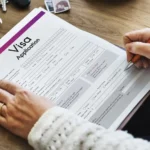Introduction
Study on Day 1 isn’t just a motivational phrase—it’s a mindset. The first day of your course, semester, job training, or even a new habit sets the tone for everything that follows. Most people procrastinate, thinking they’ll catch up later. But in reality, the earlier you start, the easier it is to stay ahead. Day 1 is when your brain is fresh, expectations are low, and your potential is unlimited.
It’s not necessary to cram everything on Day 1 in order to start strong. It entails arriving with purpose, curiosity, and a dedication to regularity. Your entire journey can be shaped by those first few hours, whether you’re a professional starting a new certification course or a student starting a new academic year. Consider it similar to building a house: if you lay a strong foundation, the building will remain sturdy. Above all, one of the top performers’ secret weapons is studying on the first day. They know that early momentum is easier to sustain. Therefore, you make the first time matter rather than waiting for the right time.

The Psychology Behind Studying on Day 1
Studying on the first day directly activates psychological triggers that support consistency, confidence, and memory. Starting early tells your brain, “This is important.” The power of that simple signal is enormous. It helps with long-term retention by causing your brain to begin creating neural pathways around the new information.
Confidence is another significant psychological advantage. You’re ahead of the curve if you’ve already read the syllabus, skimmed the chapters, or worked through the first set of problems. That advantage encourages you to keep going and raises your sense of self-worth. Imagine being the first person to finish a race; you’re not only faster, but also more composed.
Another phenomenon is the “primacy effect,” which states that we typically retain information better when it is first learned than when it is learned later. This is particularly helpful if you interact with Day 1 content. Compared to starting weeks later, you’ll probably remember it more clearly and for a longer period of time. Then comes the development of habits. Though they start with a single action, habits take time to develop. Day 1 study aids in establishing the practice of consistent review. Developing a solid habit early on is far simpler than breaking a bad one later.
How to Prepare Yourself to Study on Day 1
In actuality, studying for Day 1 starts earlier. Your level of productivity and focus at the time of the event is determined by the preparation you do in advance. Being intentional is all that is required; being a perfectionist is not. Organize yourself first. Assemble your study supplies, organize your workspace, and create a list of the topics you must cover. Look over the syllabus, make note of important dates, and make a list of the tools or resources you’ll need if it’s a new course. This procedure can be streamlined with the use of apps like Google Calendar, Evernote, or Notion.
Next, establish your attitude. “This is the beginning of something great,” you tell yourself. A positive outlook lessens fear or anxiety and increases excitement. Don’t fall into the trap of waiting to feel ready; being prepared comes from taking action, not from waiting. Remove any possible distractions as well. Set a study timer, tidy your desk, and turn off your notifications. The Pomodoro technique, which involves studying for 25 minutes and taking a 5-minute break, can significantly improve focus.
It also helps to do a mini warm-up before the big Day 1. Maybe skim some readings or watch an introductory video. This gets your brain into “study mode” early, so Day 1 feels like a continuation rather than a cold start. So, by the time you actually reach Day 1, you’ll be energized, informed, and eager to dive in. You’ll be far ahead of those still figuring out what textbook to buy.
Smart Study Strategies to Use on Day 1
Once Day 1 arrives, it’s time to execute your game plan. The goal isn’t to master everything immediately—it’s to build a rhythm. Here’s how to make the most of your first study session.
Start with high-impact actions. If it’s a course, go through the syllabus and identify key learning outcomes. If it’s a skill or training, note the objectives and what’s expected by the end. Understanding the “why” behind your learning gives direction to your efforts.
Next, preview the material. Skimming is a powerful technique. Read the headings, glance at diagrams, and identify key concepts. This light exposure helps your brain create a scaffold so when you dive deeper, things make more sense.
Take notes—even if you don’t fully understand yet. Writing things down helps with active learning. Use bullet points, doodles, or mind maps—whatever keeps you engaged. Don’t worry about being perfect; focus on being consistent.
Ask questions early. If something is unclear, write it down or reach out to a peer or instructor. This shows initiative and builds a habit of curiosity, which fuels learning. Remember: confusion is a sign you’re pushing your boundaries.
Review at the end. After your Day 1 session, spend 5–10 minutes summarizing what you learned. This reinforces memory and helps you identify gaps. You can even record a short voice memo or teach the concept to yourself out loud.
Above all, keep it light. Don’t aim for 5 hours of study. Even 30–45 minutes of focused time can be powerful. It’s not about quantity—it’s about quality and setting the stage for consistent effort.

Maintaining the Momentum After Day 1
So, you nailed Day 1. Great! Now comes the real challenge—keeping that momentum alive. Luckily, momentum builds more easily when your first step was strong.
Set a simple study routine. You don’t need to block out hours each day. Even 30 minutes of daily review can work wonders if you’re consistent. Create a calendar or checklist to track your sessions. Use habit-forming tools like Habitica or Streaks to gamify the process.
Build a feedback loop. Reward yourself after completing each session—small things like a snack, break, or even a favorite playlist. Positive reinforcement turns effort into enjoyment.
Keep reviewing Day 1 content. Spaced repetition is key to memory. Tools like Anki or Quizlet help you revisit concepts over increasing intervals so you don’t forget them. By revisiting Day 1’s lessons regularly, you strengthen their foundation.
Stay flexible. Life gets busy, and you may miss a day. Don’t beat yourself up—just restart. Consistency is built over weeks, not hours. The secret is to restart quickly and avoid letting one missed day turn into a missed week.
Reflect weekly. Every 7 days, take 10 minutes to review what you’ve learned, what’s working, and what needs adjustment. Reflection keeps you grounded and gives you a sense of progress, which fuels motivation. The key is to think of learning as a marathon, not a sprint. Day 1 is your launch pad. But the orbit you maintain afterward is what leads to real success.
Conclusion
To “Study on Day 1” is to take control of your learning journey from the very start. It’s more than cracking open a book—it’s a declaration of intent. You’re telling yourself, “I’m here. I’m serious. I’m ready to grow.” Whether you’re a student, a professional, or someone exploring a new skill, beginning with intention makes all the difference. The benefits are psychological, practical, and motivational. With the right mindset and strategy, Day 1 becomes the moment where everything changes. So next time you begin something new, don’t wait. Study on Day 1—and watch how the rest of the days fall into place.
Internal Links
Germany Study Tips: A Complete Guide for International Students






